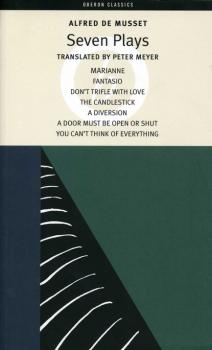MREADZ.COM - много разных книг на любой вкус
Скачивание или чтение онлайн электронных книг.Easter
The Heyst family live under a shadow. The father is in prison for embezzlement and the daughter, Eleanora, has been committed to an asylum. Mrs Heyst and her son Elis live from day to day on the edge of collapse. They fear that they are on the brink of ruin, but as the snow melts and a single daffodil appears, Easter Eve brings them hope, joy and mercy. Passionate and powerful, Easter is August Strindberg's most tender play and perhaps closest to his heart. It is a play about forgiveness and the coincidences of life from one of the world's master dramatists. Strindberg was Sweden's greatest playwright, famous for his gripping and unforgettable dramas of human life and love, whose work inspired O'Neill, Williams, Beckett and Pinter.
The Mammoth Sails Tonight!
The Mammoth is the greatest sailing ship ever built. It is to carry Princess Alysoun from Norway to Scotland, where she is to marry King Andrew the Bold. But she falls in love with Sir Patrick Spens, the bravest captain to sail the seven seas. This is a passionate, funny, subversive celebration of a play.
Alfred de Musset: Seven Plays
The seven plays in this collection share a light-hearted tone, though with occasional and unexpected moments of seriousness. In Marianne , a confirmed cynic intercedes with a married woman on behalf of his best friend. In the eponymous hero of the modern 'fairy tale' Fantasio , by turns imaginative, abrupt and perceptive, Musset provides us with a compelling self portrait. Don't Trifle with Love shows the dangerous strategems of two childhood sweethearts, supposedly destined for marriage. In The Candlestick , an infatuated clerk is set up as a decoy by his employer's young wife and her lover. The one act plays A Diversion , A Door Must be Open or Shut and You Can't Think of Everything deal, in witty, epigrammatic style, with various aspects of romance: a wife and her friend test her husband's fidelity, or lack of it; a man wants to propose to his bantering, blasé hostess; and a couple in love, one absent-minded, the other forgetful, tries to concentrate long enough to get married.
From Marriage to Divorce: Four One-Act Plays
Feydeau’s major farces are universally admired, but relatively few people are familiar with his early work. When Feydeau left school in 1879 he began writing monologues for leading actors and actresses to perform in salons and at charity concerts But by 1882 he had progressed to the one-act play, which he continued to write through his career. The most successful were the four published in this volume, written between 1908 and 1911, and which he always wished to see published together, as they are here, under the title From Marriage to Divorce . The plays are more or less based upon the breakdown of his own marriage. This volume includes the plays Better Late , One Month Early , Take Your Medicine Like a Man and Don't Walk About With Nothing On . These translations were commissioned by the BBC.
The Belle Vue
Horváth's setting for this black political farce is a seedy hotel in Central Europe in the 1920s where the only guest is a drunken, ageing nymphomaniac – wealthy and despotic. Under her sole occupancy the hotel is falling apart and sliding even deeper into decadence. There is no future and no hope until a young woman arrives with a fortune to spend. What follows is a riot of confusion and mistaken identities, satirising the despair and futility of a continent poised on the brink of fascism. Horváth (1901-1938) was accidentally killed in Paris after fleeing from the Nazis. The Belle Vue , one of 16 plays, was not performed until 1969. This translation marked the British premiere, in a production by the Actors Touring Company.
Orpheus
A 21st Century interpretation of the ancient myth of Orpheus written in the lyrical style of Greek tragedy. Commissioned by the Actors Touring Company, Orpheus opened with shows Ireland and in Greece and was followed by a full UK tour in 1997.
Tasso/Clavigo
Goethe’s classical verse play Tasso (1790) examines, in his own words, ‘the disproportion of talent to life’ and the predicament of the artist at odds with the world around him. In Clavigo (1774), a play which Goethe claimed only took him a week to write, we find the first of the double-portraits which culminates in two souls wrestling for dominion in the breast of Faust. Both these translations were premiered at the Citizens Theatre, Glasgow.
Mary Stuart/Joan of Arc
These two tragedies, written at the peak of Schiller’s career as a dramatist, contain his most telling, and touching, portrayals of women. His heroines are propelled, by birth or a sense of divine mission, into exalted political positions, where their qualities as human beings, and particularly as women, are put to the severest tests, from which they emerge triumphant, but doomed. Schiller’s breadth of sentiment, combined with his consummate stagecraft, and Shakespearean mastery of verse and nobility of language, ensure his position as Germany’s greatest dramatist, and these translations, prepared for, and performed by Glasgow’s famous Citizens Company, should go far to ensure his long overdue acceptance in Britain as a master of the European Theatre.
The Robbers
The Robbers (1781) was written in great secrecy under the prison-like conditions of Wurttenberg's Karlsschule: Karl, the son of a count, is disinherited through the machinations of his brother Franz, and, turning his back on a social order he finds unjust and corrupt, becomes the leader of a band of robbers.
Enrico Four
Premiered in this translation by the Citizens Theatre Company, Glasgow. In Enrico Four a man believes he is Henry IV, Holy Roman Emperor. But is he? Pirandello’s study of perceptions has become a twentieth century classic which invites us to consider our personal madness in offering a different face to everyone we meet.









